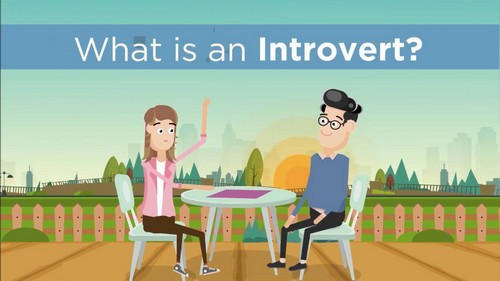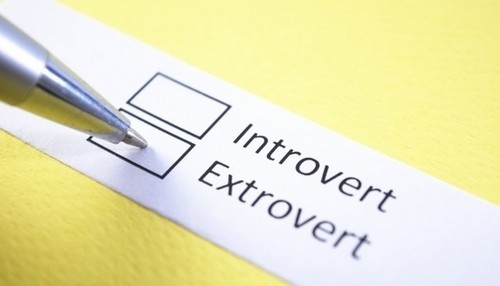Like most of the personality types of human beings, being introvert and extrovert is also not absolute. Still, most of the people, identify their personality around one of these labels and cold-shouldering others for being too quiet in case of introverts and too outgoing in case of extroverts. Most of the times, introverts are misjudged wrongly for being too shy, however, shyness is fear of getting judged socially and it is a common trait that can be found in any personality type. It is not necessary that introverts always want to be alone.
They usually prefer small intimate gathering with their close ones with whom they are most comfortable. The personality type of a person does not necessarily refer to his/her friendliness, but determine how a person will react in a certain situation. Extroverts are commonly known to be craving for socialization and on the opposite side, introverts are known for staying away from socialization and being in quieter situations.
In this article, you learn about both personality types along with their personality traits and differences between them.
Table of Contents
Who is an Introvert?
Introverts prefer to spend time with their own ideas and thoughts. People usually get confused between introversion and shyness. However, it is not necessary that introverts will always be shy, they choose to avoid social gathering and public interactions. Shyness has nervousness/uneasiness and a negative component attached to it and on the other hand, introversion does not have that negative component attached to it. one another misconception about introverts is that they don’t have friends.
However, introverts do not become friends with others easily but they tend to have strong and deep friendships with very few people. Once introverts become friends with someone then there is hardly any difference between the friendship of an extrovert or an introvert. They are as open as an extrovert with their friends. Even though introverts are not considered suitable for the leader’s role and considered to be weak at establishing commercial relationships. Introverts are not only good at maintaining strong relationships but they also can be successful in the careers of their choice.
Introverts gravitate towards careers such as engineering, accounting, long-haul driving, and writing or any other type of artistic work that include less human interaction.
Common Introvert Traits
1) They don’t enjoy to be the center of attention.
2) Prefer to spend time in solitude.
3) Think before they speak and are usually taciturn.
4) Give more importance to a one-on-one relationship.
5) Love to work in independent and quiet environments.
6) Requires a lot of alone time to recharge and introspect.
7) Usually reserved in nature.
8) Deeply focused and always think about limited interests.
Who is an Extrovert?
An extrovert thrives on the energy of people and things that are around them. They are usually center of attention most of all gathering they are part of. They have a lot of connection with people. There is no research that proves that how differently extroverts and introverts react to change, but extroverts being having a large social circle and nature to get friendly easily with new people don’t find it hard to adjust when the change takes place. They attract more people to offer social support to them and when major events take place, they have more friends to support them than that of an introvert. In addition to this, society is usually get drawn towards extroverts more than that towards introverts.
In other words, we can say that extroverts are more suited in the type of world we have. The world we live in is more geared towards people who make connections, go to interviews, and go on dates. All these things make you easier to get along and get accepted by people. Because of this reason extroverts are considered suitable for leadership roles and get great success in people-centric roles such as marketing, entertainment, sales, advertising, and public relations etc. However, one should not forget that extroversion is only one component of the complex personality of the personality of a person.
Therefore, extroversion and introversion should be judged in combination with other traits of a person. for instance, there is the difference between an extrovert who is agreeable and the one who is quite loud and make rude and inappropriate comments.
Common Extrovert Traits
1) Love being the center of attraction.
2) Tends to have a great social network.
3) Take decisions quickly.
4) Think out quite loudly.
5) Positive, outgoing, and enthusiastic.
6) Recharge their energy by being with a lot of people.
7) Love to work in team-oriented and open work settings.
Difference between Introverts and Extroverts.
| Introverts | Extroverts |
|---|---|
| Introverts recharge their energy by being alone. | Extroverts recharge their energy by being social. |
| Introverts tend to have fewer friends but the friends they have usually are very close. | Extroverts have a huge number of friends but their bond with them is usually weak. |
| Introverts have more fun in one-to-one conversations. | Extroverts have more fun in group discussions/conversations. |
| Introverts find it very difficult to cope up with change. | Extroverts easily cope up with change. |
| Introverts usually love to listen more. | Extroverts usually love to speak more. |
| Introverts are generally reserved in nature. | Extroverts are generally open in nature. |
| Introverts can stay deeply focused for a long time and they don’t get distracted easily. | Extroverts find difficult to focus on one thing for a long time and they easily get distracted. |
| Introverts usually take more time to make decisions and they reflect more before taking any decision. | Extroverts take decisions quickly as they rely on their intuitions to take a decision. |
| Introverts get open up with a few people only. | Extroverts get open up with anyone. |
| Introverts love to work in quiet places and they usually prefer indoor workplaces. | Extroverts love to work in open spaces. |
| Introverts don’t like being the center of attention. | Extroverts love to become the center of attention. |
| Introverts speak up and share their ideas only when they are asked. | Extroverts usually participate in meeting actively and speak their mind. |
In conclusion, we can say that both introvert and extrovert personalities have their benefits as well as drawbacks. With the help of this article, you can easily understand why a person behaves in a certain way and having an understanding of both introvert and extrovert nature can help you to handle people with different personality effectively. In addition to this, you can make the most benefits by allotting work which suits the personality of employees. they will perform better if they enjoy what they do.
Liked this post? Check out the complete series on Personal Development

